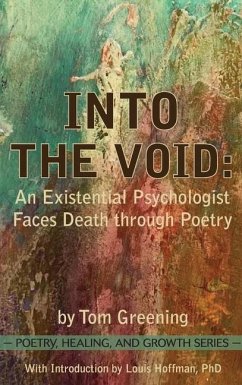
Against Happiness
In Praise of Melancholy

PAYBACK Punkte
7 °P sammeln!
A scholar and authority on the relationship between literature and psychology looks at the American quest for happiness and rejection of melancholy and argues that melancholia is actually essential to a thriving culture, the underlying impetus for creative thinking, and the muse of great art, music, literature, and innovation.
We are addicted to happiness. More than any other generation, Americans today believe in the power of positive thinking. But who says we're supposed to be happy? In Against Happiness, the scholar Eric G. Wilson argues that melancholia is necessary to any thriving culture, that it is the muse of great literature, painting, music, and innovation - and that it is the force underlying original insights.
So enough Prozac-ing of our brains. Let's embrace our depressive side as the wellspring of creativity. It's time to throw off the shackles of positivity and relish the blues that make us human.
So enough Prozac-ing of our brains. Let's embrace our depressive side as the wellspring of creativity. It's time to throw off the shackles of positivity and relish the blues that make us human.










